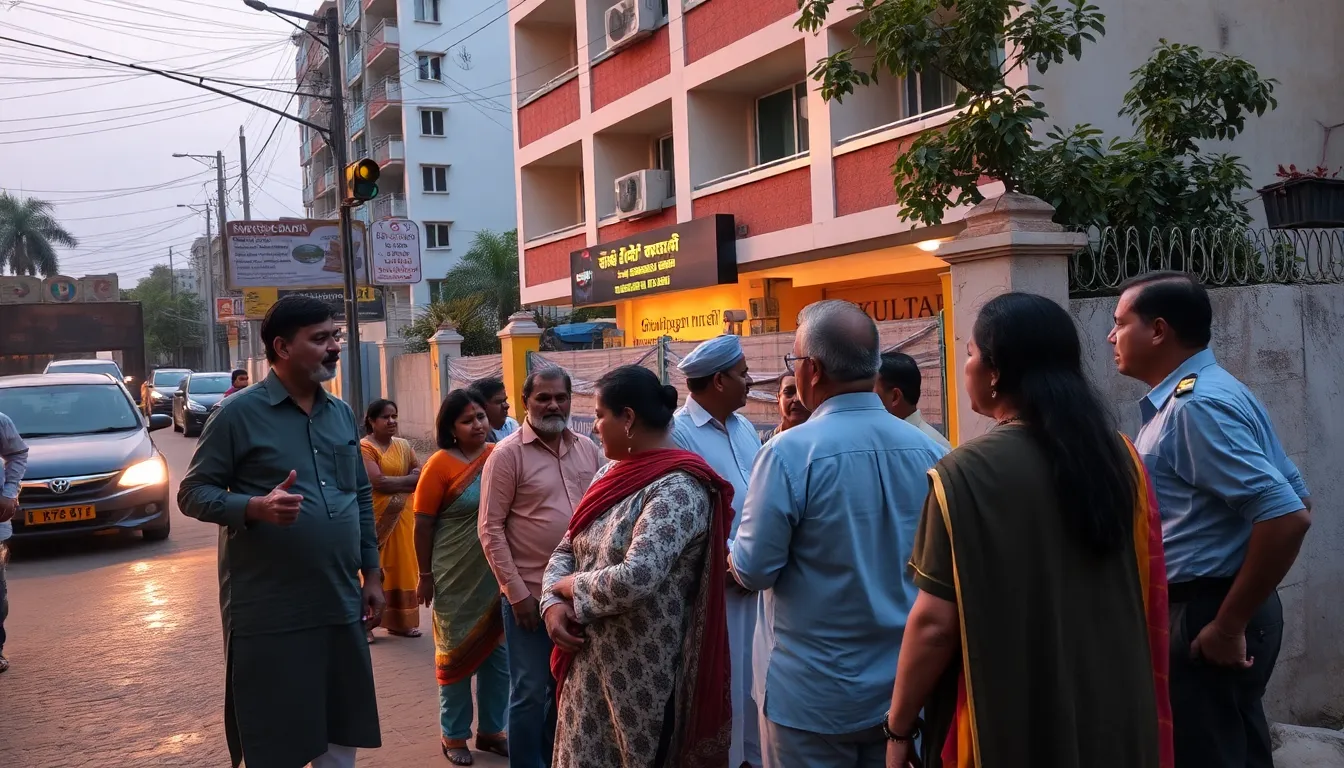In Gujarat, the rise of Paying Guest (PG) accommodations in residential areas has caused significant tensions. Homeowners are facing challenges from tenants operating these facilities without proper permissions. Recently, the Gujarat High Court intervened in a case that may set important precedents for housing regulations in the state.
On Monday, Justice Mauna Bhatt of the Gujarat High Court took a strong stance on the issue. The court directed the Gujarat government and the Ahmedabad Municipal Corporation (AMC) to inform the public about the rules governing PG accommodations and homestays. This decision followed a heated dispute in Skylark Apartment, located near the busy Shivranjani crossroads in Ahmedabad.
Residents of Skylark Apartment had raised complaints against a flat owner who was allegedly running a PG hostel illegally. Tensions escalated when the AMC sealed the property on June 11, rejecting the owner’s explanations. The owner had been leasing out two flats to tenants, who were then reportedly operating a PG accommodation, leading to a group of eight individuals living in the building.
The residents were frustrated and initially served notices to the flat owner. When this did not yield results, they sought assistance from the police, who took no action. Ultimately, the society turned to the AMC, prompting a show cause notice issued on April 23. The flat owner argued that the flats were being used for a legitimate “Home Stay” under Gujarat’s 2020 tourism policy. They claimed the apartment had a separate entrance and did not disturb the other residents. However, they applied for Home Stay registration only days before the court date on June 7.
During a hearing on June 13, the High Court instructed the AMC to temporarily lift the seal on the flats while the Home Stay application was under review. However, the relief was short-lived. AMC’s counsel, G H Virk, presented an affidavit stating that the owner did not meet the Home Stay policy criteria, which requires owners to reside on the premises and personally host short-term guests. In this case, the owner lived elsewhere while tenants were running the so-called “Murlidhar PG” and advertising for guests online.
Photographic evidence from the AMC supported claims that PG operations were ongoing at the location. Following this, the state government rejected the owner’s application for Home Stay registration.
The High Court’s involvement highlights a growing problem in many urban areas. With the increasing number of PG accommodations, housing societies are struggling to maintain the peace and privacy typically expected in residential buildings. The court’s decision to mandate public awareness of the regulations may offer some much-needed clarity to both homeowners and tenants.
The case remains ongoing, with the High Court granting the petitioner time to file a response and scheduling the next hearing for June 24. Legal experts suggest that this ruling could benefit numerous housing societies facing similar challenges across the state. As the court emphasizes the importance of following regulations, it sends a strong message about the necessity of proper housing practices in urban areas.
Homeowners in Gujarat hope that the court’s decision will bring about a more peaceful coexistence between them and tenants in PG accommodations. This case may well pave the way for stricter enforcement of housing laws, ensuring that residential areas remain true to their intended purpose without the interference of commercial activities. With the High Court’s directive, residents may finally see a resolution to their ongoing disputes. The outcome of this case could shape the future of housing regulations in Gujarat, making it a significant legal development in the region’s urban landscape.


Leave a Reply